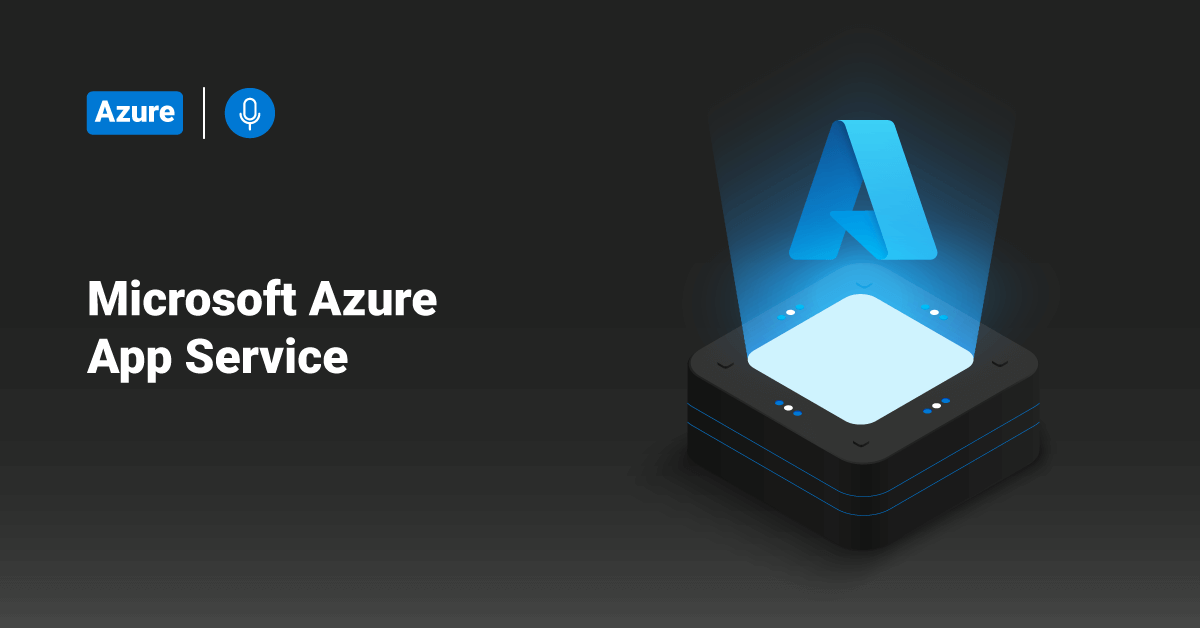Microsoft Azure App Service is an HTTP-based service for REST APIs, hosting web applications, and mobile back ends. Users can develop these apps in their favorite language like Java, Ruby, .NET, .NET Core, Node.js, Python, or PHP. In addition, azure applications can scale and run on both Linux and Windows-based environments with ease.
Microsoft Azure adds certain advantages to these App services, such as load balancing, security, automated management, and autoscaling. In addition, users can take advantage of its DevOps capabilities, such as continuous deployment from GitHub, Docker Hub, Azure DevOps, and other sources, staging environments, package management, TLS/SSL certificates, and custom domain.
With App Service, the user needs to pay only for the Azure compute resources they use. The compute resources used by a user are determined by the App Service plan that they run.
Features of Azure App Service
Some of the key features offered by Microsoft Azure App Service are:
Multiple languages and frameworks:
Azure App Service offers first-class support for ASP.NET Core, ASP.NET, Ruby, PHP, Java, Node.js, or Python. Users can also run PowerShell and other executables or scripts as background services.
Managed production environment:
App Service maintains and patches the Operating System and language frameworks for the user. Therefore, developers should spend time writing great apps instead of worrying about the platform, as Azure does that for the customers.
Containerization and Docker:
In Azure App Service, users can dockerize the app and host a custom Linux or Windows container. It can also run multi-container apps with Docker Compose.
DevOps Optimization:
The Azure App Service helps users set up continuous integration and deployment with GitHub, Azure DevOps, BitBucket, Azure Container Registry, or Docker Hub. They can promote the service updates through staging and test environments. Users can manage and monitor their apps in App Service by using the cross-platform command-line interface (CLI) or Azure PowerShell.
Global Scale with High Availability:
Azure App Services can scale up or down their services automatically or manually at any time. Users can host their apps anywhere in the global Microsoft’s data center infrastructure. In addition, the Service Level Agreement (SLA) promises high availability.
Compliance and Security:
App Service is SOC, ISO, and PCI compliant. Users can authenticate their apps with Google, Azure Active Directory, Twitter, Microsoft account, etc. In addition, users can manage service identities and create IP address restrictions.
Serverless Code:
Run a script on-demand or code snippet without explicitly managing or providing infrastructure, and pay only for the compute time user code actually uses.
Application Templates:
Users can choose from an extensive list of application templates in the Azure Marketplace, such as WordPress, Drupal, and Joomla.
API and Mobile Features:
Azure App Service offers turn-key CORS support for RESTful API scenarios and simplifies mobile app scenarios by enabling offline data sync, authentication, push notifications, and more.
App Service on Linux:
Azure App Service can host web apps natively on Linux for supported application stacks. In addition, it can also run custom Linux containers (also known as Web App for Containers).
Visual Studio and Visual Studio Code Integration:
The dedicated tools offered in Visual Studio Code and Visual Studio streamlines the work of creating, debugging, and deploying.
Connections to on-premises data and Software as a Service (SaaS) platforms:
Users can choose from more than 50 connectors for Software as a Service (SaaS) platforms (such as Salesforce), internet services (such as Facebook), and enterprise systems (such as SAP). In addition, it offers access to on-premises data using Azure Virtual Networks and Hybrid Connections.
Besides App Service, Microsoft Azure provides other services that can be used for hosting web applications and websites.
Limitations of Azure App Service
Some of the limitations of the Microsoft Azure App Service are:
- Azure App Service on Linux is not supported on their Shared pricing tier.
- Historically, users can not mix Windows and Linux apps in the same resource group. However, all resource groups created on or after January 21, 2021, do support this scenario. Additionally, for resource groups designed before January 21, 2021, Azure will soon roll out the ability to add mixed platform deployments across Azure regions (including National cloud regions).
- Users can not mix Linux and Windows apps in the same App Service plan.
- The Azure portal shows only features that currently work for Linux apps. As new features are enabled, they’re activated on the portal.
- When deployed to built-in images, users content and code are allocated a storage volume for web content, backed by Azure Storage. The disk latency of this volume is higher and more variable than the latency of the container filesystem. Therefore, apps requiring heavy read-only access to content files may benefit from the custom container option, which places files in the container filesystem instead of the content volume.
Conclusion
This document presents a brief introduction, features, and limitations of the App Service offered by Microsoft Azure. Hope this tutorial was helpful, and do reach out to us if you have any query or suggestions.









